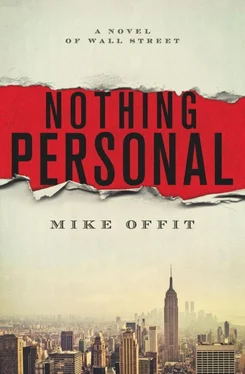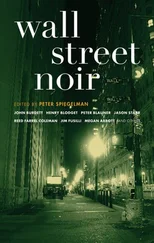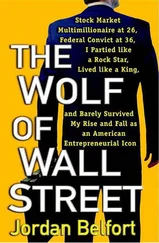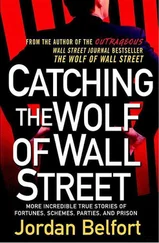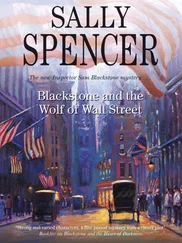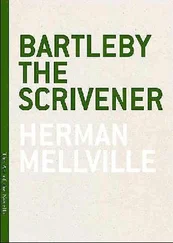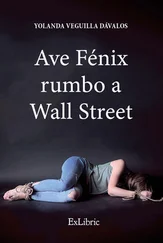“They bought ’em?”
“Yup. At seven. Now, get this. I paid Dougherty two dollars per thousand commission. He sold seventy-five million bonds. That’s three hundred grand in gross commission. Priority one means he gets the top percentage payout on commission—fifteen percent. That’s about forty-five grand net pay for four minutes’ work. And, he’s got no positions to worry about, no losses to eat. If I’m lucky and don’t blow the four hundred grand profit I just made by doing something stupid, I might see five or ten grand off this trade at the end of the year. Once he prints a ticket, nothing can make him give that money back. Sweet, huh?” Alex shook his head, evidently finding it a little hard to believe himself.
“Well, that’s why we’re here, right? For the glory of Weldon, and a private plane.” Warren smiled.
Alex shrugged. “Yeah. Whatever. All I know is, if I wasn’t doing this, I’d probably be one of those homeless guys washing windshields. I really don’t have a clue what else I could do for a living.” Something defeated in Alex’s voice depressed Warren. That Alex had an undergraduate degree in engineering from Princeton, an MBA from Harvard Business School, and had had nothing but success as a trader didn’t seem to have helped his confidence in his abilities at all.
“You know what? I think I’m going to go sit with Dougherty for a while. At least he’s probably enjoying his big trade. Jesus, you just printed four hundred grand. Shouldn’t you feel good about that?” Warren said, amazed.
“Sure. I feel great. Look at me. I could just bust into song or something. So Met Life bought my fucking tens. Now what? Now I gotta think of something else. Maybe we could do a strip deal. I don’t know. The month’s almost over, and if I don’t hit one point two mil, I’ll be behind last year. You know, last year was a record year. And we’re budgeted to be up twenty percent this year. Isn’t trading fun? I hate this fucking job. They’re going to carry me out of here in a goddamn box, but I’ll be all dried out, like a fucking prune, so it’ll be a small, light box. Am I cheering you up yet?” Alex wasn’t kidding. His shoulders were slumped, and he was staring tensely at the screens. He had been inactive for no more than two or three minutes, and you could see he was already nervous, bored, anxious. He punched an autodial button on the turret, then hung up before it rang. He scribbled a few notes, then picked up the handset to make a call, paused to look at the screens, then slammed the phone down on the desk. Warren got up and grunted a good-bye. At twenty-nine, Alex looked about forty, and Warren noticed as he got up that Alex was going gray at the temples, too.
Warren no longer had any doubts. Despite what Bill Pike had said in that terrible interview, he hoped that Weldon would let him make his own choice. He wanted no part of the trader’s life. Selling seemed a far better lifestyle, and deep down, Warren had to admit he wasn’t sure he could do trading or stand that kind of pressure. As Dirty Harry said, “A man’s got to know his limitations.”
Fortunately, Carl Dressler had been supportive of Warren’s decision to go into sales. He told Warren that he thought Warren would make a terrific trader, but agreed that with his “interpersonal skills” he would probably be more valuable to Weldon in sales. Plus, everyone was impressed with how well Warren understood all the mortgage-backed securities structures, which would be useful in sales. The only issue was one trader on the government desk who, for some reason, hated him. Sean O’Hara was known to be unstable, though, and a little anti-Semitic, and he suspected Warren might be Jewish. Jillene told him to forget about it. Frank Malloran agreed and had said, “If O’Hara would quit stuffing half a pound of coke up half his nose in the bathroom half the day, maybe that half-wit would be half-sane half the time.” Warren vowed to try to win O’Hara over.
The first attempt had started unpleasantly. Dan Goodman, a junior salesman, had asked O’Hara the same idiotic question three times about a trade O’Hara had suggested. Even Warren understood the trade—it was nothing more than a purchase and sale to take advantage of a spike in repo rates on a bond that was temporarily in short supply. Goodman’s client could earn an effective 10 percent annualized return just to lend another client some bonds for a week. The normal rate was about 4 percent.
“Jesus Christ, Goodman, what the fuck is wrong with you?” O’Hara had said. “You got shit for brains or something?”
Goodman told O’Hara to screw off, that the trader had the whole concept wrong. Everyone was a little stunned to realize that Goodman didn’t understand it.
Warren was listening to the conversation with the intermediate trader, and he jumped in good-naturedly, saying, “Hey, Dan, come on! You have to get it! This is embarrassing! Jews are supposed to be smart!” The traders all snickered—only another Jewish guy could get away with a joke like that.
Goodman looked confused for a second, then blurted out, “What? Oh, no, no. You don’t understand, I’m not Jewish !”
The sheer stupidity of his reply convulsed the entire desk, and O’Hara slapped Warren on the back, laughing so hard tears ran out of his eyes. From then on, every time Warren passed the desk, O’Hara would whine, “Oh, no, no. I’m not Jewish!”—and they’d share a laugh. O’Hara was no longer an obstacle to Warren—in fact he became a big supporter.
Jillene called Warren upstairs in early November and told him he’d been placed in institutional fixed-income sales. He’d be reporting to Malcolm Conover, his salary was raised immediately to $100,000, and he could expect a 50 percent bonus, or better, at year’s end if he acquitted himself well over his first eight weeks. He would likely become a commission salesman next year. They talked briefly about Serena Marchand, who had never come out of her coma and was not expected to live. Warren was surprised by the emotion in the older woman’s voice—she had only met Serena once for a short interview. Maybe Jillene wasn’t so tough after all.
He couldn’t wait to tell Larisa all the good news. The downside was that selling would probably involve more travel, but he hoped he might get some accounts in fun places to visit, not just New York. A lot of younger salesmen were given accounts in the Midwest or the South because the branch offices of Weldon were not tremendously strong in fixed-income sales.
“It’s really not that difficult to figure out,” he told Larisa as they ate their appetizers—green salads in a perfect mustard vinaigrette—at La Goulue, an intimate French bistro on Seventieth Street off Madison Avenue. The room was paneled in a rich brown mahogany with large mirrors and framed pictures lining the walls, the lighting warm and flattering. Crisp white tablecloths and an all-French staff lent the place a true Parisian feel made tactile by the mellow glint of the well-worn silverware that filled the air with the welcoming chatter of fork and knife against china plates. “Basically, the accounts are guys who get paid to buy bonds, and you get paid to sell them. We’ve got some pretty decent traders, especially in mortgages, and all the accounts have a lot of respect for Weldon. With some of the guys I’ve been watching, most of their business is just picking up the phone and taking orders, or repeating what a trader says is a good trade to a customer. And they make a ton of money just being parrots. But few of the guys really sell. I mean, they could sell anything—cars, real estate, shoes. There’s a guy in LA who’s amazing, and a few in New York and Chicago. It just doesn’t seem like it takes a lot of brains to do this. Being smart can help, but it sure isn’t a requirement.”
Читать дальше
